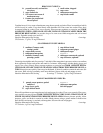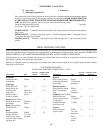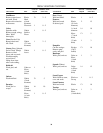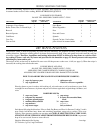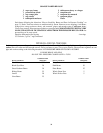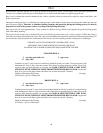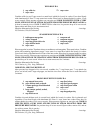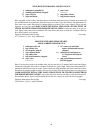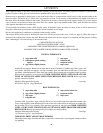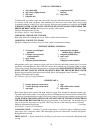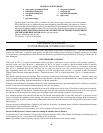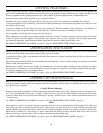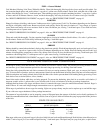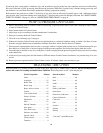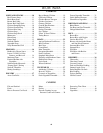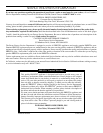
40
FISH — General Method
Cod, Mackerel, Herring, Lake Trout, Whitefish, Mullet. Clean fish thoroughly, filet large fish or leave small pan fish whole. Cut
into container length pieces and soak in brine, 1 cup salt to 1 gallon water for 60 minutes. Drain. Pack with skin side of fish to the
outside of the Mason jar. Leave
1
⁄
2
inch head space. Then submerge open jar in a kettle containing hot brine,
1
⁄
2
cup salt to 1 gallon
of water, and boil 20 minutes. Remove, invert, and drain thoroughly. Add a bay leaf and a slice of onion to each jar, if desired.
See “HOW TO PRESSURE CAN FOODS” on page 41. Also see “PROCESSING TIME CHART” on page 41.
LOBSTER
Plunge live lobsters in boiling, salted water, 2 tablespoons salt to 1 gallon water. Cook 15 to 30 minutes depending on size. Remove
and dip in cold lightly salted water. Remove meat and wash quickly. Drain. Dip meat in solution of
1
⁄
2
cup vinegar to 2 quarts
water. Drain and remove all excess moisture. Pack in clean, hot Mason jars, leaving
1
⁄
2
inch head space. Cover with hot brine,
1
1
⁄
2
tablespoons salt to 2 quarts water.
See “HOW TO PRESSURE CAN FOODS” on page 41. Also see “PROCESSING TIME CHART” on page 41.
SALMON
Clean and wash fish thoroughly. Cut into container length pieces, leaving in backbone. Soak in brine,
1
⁄
2
lb. salt to 1 gallon water,
for 60 minutes. Drain well. Pack solidly in Mason jars leaving
1
⁄
2
inch head space.
See “HOW TO PRESSURE CAN FOODS” on page 41. Also see “PROCESSING TIME CHART” on page 41.
SHRIMP
Shrimp should be canned when absolutely fresh as they deteriorate quickly. Wash shrimp thoroughly, peel, and wash again. Cover
with cold brine,
1
⁄
2
cup salt to 1 quart water, for 20 to 30 minutes depending on size. Drain. Place on canning rack and cook 6 to 8
minutes in boiling brine, proportions as above. Dry shrimp. Pack loosely in clean, hot Mason jars leaving 1 inch head space. Fill
containers with boiling brine, 1
1
⁄
2
tablespoons salt to 1 quart water, leaving 1 inch head space.
See “HOW TO PRESSURE CAN FOODS” on page 41. Also see “PROCESSING TIME CHART” on page 41.
CANNING FRUITS AND TOMATOES
Foods high in acidity, fruits and tomatoes, may be canned in a Pressure Cooker-Canner. The pressure processing method for fruits
and tomatoes gives a heat treatment equivalent to the much longer processing in a boiling water bath canner.
Select firm, fully-ripened but not soft fruit or tomatoes. Do not can overripe tomatoes. Wash, peel, core, or remove pits if neces-
sary. To loosen skins of peaches, apricots, and tomatoes, blanch for one-half minute in boiling water. Dip into cold water and peel.
Cherries and plums are usually canned whole. Prick the skins with a fork to prevent them from breaking during processing. Leave
fruit whole or cut as desired (halves, slices, chunks).
Some fruits tend to darken while they are being prepared. To prevent the darkening, place fruit in an ascorbic acid solution (1
teaspoon ascorbic acid to 1 gallon water) or use ascorbic acid or citric acid mixtures according to package instructions.
Although fruit has better color, shape, and flavor when it is canned with sugar, it may be canned unsweetened if desired. Sugar is
used for flavor. It is not used in high enough concentration to act as a preservative.
White sugar is preferable to brown sugar for canning. Light corn syrup or honey may be used to replace up to one-half the sugar.
If you wish to use sugar substitutes, follow package instructions.
The amount of sugar desirable to use in preparing syrups will depend upon the tartness of the fruit and on family preference. It
should be remembered that fruit, when heated, releases some of its juices which will dilute the syrup in proportion to the juiciness
of the fruit.
SYRUPS FOR CANNING FRUITS
SUGAR PER YIELD OF
SYRUP QUART OF LIQUID SYRUP
Very Light
1
⁄
2
cup 4 cups
Light 1 cup 4
1
⁄
2
cups
Medium 2 cups 5 cups
Heavy 3 cups 5
1
⁄
2
cups
Heat sugar with water or juice until sugar is dissolved. Add fruit and cook until heated through. Pack fruit into clean Mason jars to
within
1
⁄
2
inch of top of jar. Cover with hot liquid leaving
1
⁄
2
inch head space. The liquid may be syrup, fruit juice, or plain water.



